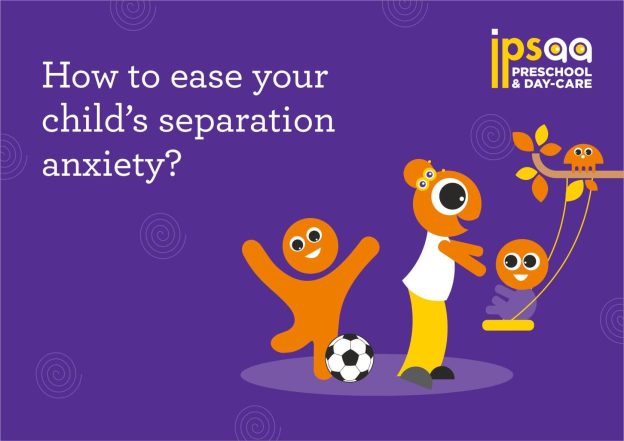The term separation often brings sadness or anxiety in us and the same goes for little ones. The children generally feel uncomfortable when their mother is out of sight even for a short period, while others appear to have ongoing anxiety due to separation during infancy, toddlerhood, and preschool.
The trick for surviving separation anxiety needs preparation, and not only does it make the child suffer but also the parents.
How it affects differently in accordance to specific age group:
1) Infants: Children develop separation anxiety at the age of 4 to 9 months. The separation anxiety grows after the child gains a sense of object permanence. At first, when infants realize that you’re gone; it will make them feel uncomfortable. This separation can be worst if your child is hungry, tired, or not feeling well.
2) Toddlers: At 15 or 18 months of age, we frequently observe toddlers step out of the fear of infancy and start facing different challenges. The anxiety of separation is harder in comparison to hunger, tiredness, or illness, which is very common in toddlers.
3) Preschoolers: At the age of 3 years, they can understand the feelings of separation anxiety. This feeling in children doesn’t make them prone to stress but they certainly look for a change. Try to be consistent, and don’t cancel any plan based on sudden interruption.
Can the impacts of separation be controlled?
- Goodbye Signals: – There are several ways or signals for goodbye such as gifting special toys or writing a short message, when you leave. I would suggest not staying too long after sending a goodbye signal as it triggers anxiety.
- Stay Consistent: – Always try to leave the same signal at the same time, each day to avoid unpredicted factors. For example, if you leave for the office at 10 am, then try to leave the short note at 9:30 am always. This practice can ease the heartache and will help your child to build trust when they are alone.
- Attention: – At the time of separation, always try to give your child full attention. I will advise you to signal a goodbye in spite of their cries for you to not go away after that.
- Adapt the child style: – Whenever you will talk with your child, try to talk or give signals in their language. For instance, if you will come in the evening, instruct it in such a way that they can understand, like “I will be back after the art and craft class or before evening snack”.
It’s mostly rare to see separation anxiety regularly after the toddler and preschool years, but if you are still concerned that your child isn’t comfortable in your absence. Then I would suggest practicing these methods which are mentioned above. https://ipsaa.in/play-schools/


